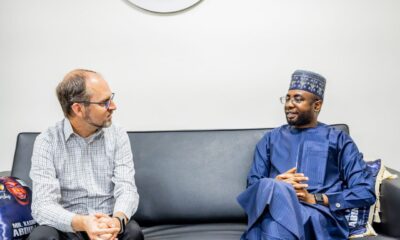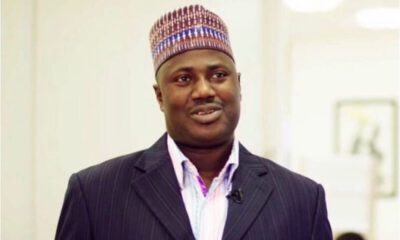News
Food security: Nigeria requires about 312,000 metric tons of seed – Minister
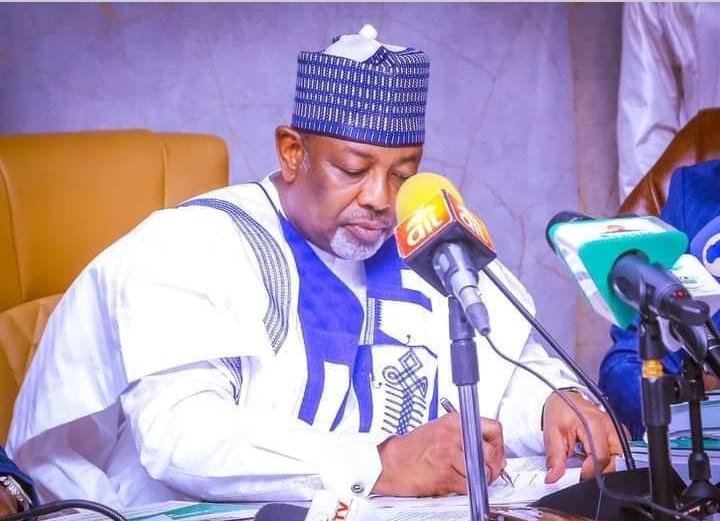
The Minister of Agriculture and Food Security, Sen. Abubakar Kyari, says Nigeria requires about 312,000 metric tons of seed towards achieving food security, food sufficiency and global security in 2024.
Kyari said this at a High-Level Stakeholders’ Forum on Seed System Development, organised by Feed-the Future Nigeria Integrated Agriculture Activity, on Tuesday in Abuja.
The minister was represented by Dr Haruna Suleman, the Director, National Food and Strategic Reserve.
The theme of the forum is, “ Enhancing Seed Systems Development for Improved Food Security: A Paradigm of USAID Interventions in Northeast Nigeria’’.
Kyari said the ministry had outlined series of critical pathways to solve the food security challenges in Nigeria.
He explained that the pathways were streamlined into short, medium and long term for a period of four years, which includes the immediate production of 31 million metric tons of grain in 2024.
According to him, for success to be achieved, factors to be addressed are the seed availability, affordability and adaptability, paying particular attention to food security.
“Major crops that are most concerned are rice, maize, wheat, sorghum and cowpea in 2024.
“We require about 312,000 metric tons of seed which is to enable us to achieve the required metric tons.”
The minister said the Federal Government had developed programmes to support farmers with high quality seeds for rice, wheat, maize, cassava and other inputs at a subsidised rate.
He said the Nigerian seeds development required partnership and synergy among all key stakeholders that would facilitate a model of collaboration built on knowledge sharing, skill exchange, expertise, competitiveness and mutual benefit.
“Of great interest is the new science, technology and innovation (STI) developed by USAID Feed-the Future Nigeria Integrated Agricultural Activities (NIAA) implemented by International Institute of Tropical Agriculture (IITA).
“It is a community based enterprises model that is not only localised but adaptable to the climatic and specific conditions of communities and above all against the traditional approach of demand driven which have not been effective.
“The NIAA model is market driven and on need based riding on cohesive cooperative system to create the needed ownership and stewardship to protect enterprises.
“This model developed and promoted by IITA and NIAA was piloted in the northeast of Nigeria in the states of Adamawa, Gombe and Yobe.
“Building an ecosystem and end-to-end market driven seed network through the community based system to produce seed to a network linked farmers group aggregated within the community with the local governments.
“This by extensions makes the availability and adaptable and specific resilience seeds to the ecology of the locations concerned,’’ he said.
Mr Prakash Silwal, Chief of Party/Principal Specialist, IITA, said that USAID had in the last five years, funded IITA and their partners to work in the northeast, to address the food insecurity.
Silwal said the forum was organised to share some of the successes so far recorded especially with a focus on seed system development.
According to him, it is the IITA’s contribution to addressing food security in the northeast, adding that the actors that made it happened would be awarded.
He said that 150 community based seed enterprises contributed to making farming possible to nearly half a million farmers or half a million hectares of land in the region.
“About 3 million dollar worth of additional food may be provided in those areas.
“As we are winding up our programmes, we are also here to share some of those knowledge that we have developed, as to what varieties of crop, legumes and cereals, will be very good in those areas,’’ he said.
Mr Bassey Archibong , Market Systems and Livelihood Specialist, Feed the Future Nigeria Integrated Agriculture Activity, IITA, said the beginning of food security anywhere was seeds.
Archibong said the programme was aimed at ensuring that farmers had the right kind of seeds that must be affordable and accessible within the localities where food crops were being produced.
Malam Yakubu Gombi, leader of Gombi Community Based Seed Producers from Adamawa, thanked IITA for its support, saying they had been empowered to become entrepreneurs.
He said the organisation had trained him and his group in different fields of agriculture with requisite skills in the last five years.
News
NAEC releases date for 2024 conference
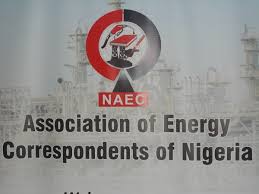

…Rallies oil industry leaders, stakeholders for conversations on energy transition
Top energy industry leaders and experts are expected to converge in Lagos on October 3, 2024, at the Association of Energy Correspondents of Nigeria (NAEC) Annual International Energy Conference 2024.
The organiser revealed that the conference will focus on the role of natural gas as an energy transition fuel, addressing Nigeria’s Trilemma of Finance, Energy Security, and International Politics.
The National Chairman of NAEC, Ugo Amadi, in a statement signed and released to the media on Monday stated that the captivating lineup of activities for the association’s 2024 conference, promises to tackle Nigeria’s most pressing energy challenges head-on.
Amadi said the conference’s main theme, “Gas as Energy Transition Fuel: Navigating Nigeria’s Trilemma of Finance, Energy Security, and International Politics,” was carefully curated to address the critical national discourse and provide strategic solutions to guarantee Nigeria’s energy security and sustainable future.
He said, “The conference will feature a dedicated session on “Actualizing the Decade of Gas: Powering Nigeria’s Energy Sufficiency, Industrialisation, and Economic Prosperity,” and other sessions that will talk about the pivotal role of natural gas in driving Nigeria’s energy sufficiency, industrialization, and overall economic prosperity.
The NAEC Chairman further emphasised that the third session of the conference with the topic: “Solving the Gas-To-Power Debacle: Unlocking Investments For NESI, Analysing Tariff Adjustment, Frequent Grid Collapses, and 6,100 MW Target by December for Sustainable Growth.”
He noted that the session promises to tackle the longstanding challenges in the gas-to-power sector, unlocking investments, addressing tariff adjustments, and achieving the ambitious 6,100 MW target for sustainable growth.
Amadi emphasised that the 2024 Conference, marking the inaugural edition under his new leadership of NAEC, would serve as a pivotal platform for influential figures to exchange insights, knowledge, and peer-reviewed analyses concerning the opportunities and challenges confronting the diminishing investments in Nigeria’s energy sector.
Meanwhile Adeola Yusuf, Chairman of the NAEC 2024 Conference Committee, in his remark revealed that the upcoming conference promises to be a game-changer for the Nigerian energy industry.
According to Yusuf, the conference would bring together a diverse array of players, including ministers, CEOs, industry captains, regulators, lawmakers, and other key stakeholders, adding that with the participation of industry leaders and experts, the event promises to deliver actionable insights and innovative strategies to propel the sector forward.
He further added the conference would be a catalyst for unlocking investments, enhancing energy security, and driving sustainable development in Nigeria’s energy landscape.
News
AEDC blames FCT power outage on faulty feeders
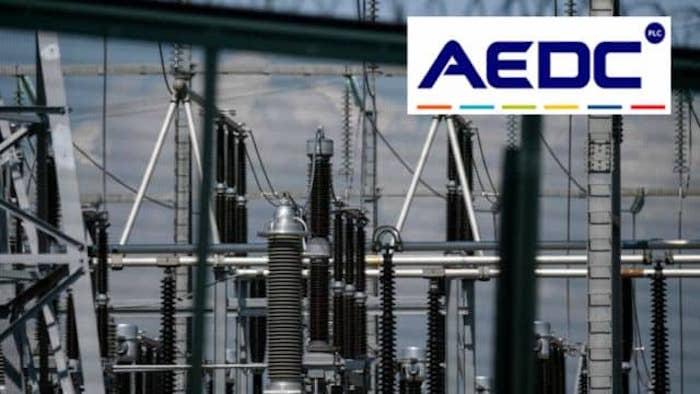

The Abuja Electricity Distribution Company (AEDC), has blamed faulty feeders for the power outage being experienced in parts of Abuja, the Federal Capital Territory.
In a statement on Monday, the company identified the feeders affected to include L36, H23, H33 and 8.
The company noted that the faulty feeders affect power supply in Apo Mechanic Village, Waru Village and its environs, Jabi, Parts of Utako, Life Camp, Kado, Efab, Zango Daura, and Mbora Estates and its environs was also affected.
The statement by the company reads, “This is to inform residents in parts of Abuja that the power outage currently being experienced is due to technical fault on feeders L36, H23, H33 and 8 respectively.”
“Locations affected: are feeder L36-Entire Idu industrial, CITEC Estate, Efab Global, Babaginda Estate, Nizamaye Hospital and its environs.”
“FH 23-Airport, River Park, Shoprite, NIPCO, Dunamis Church, NIGCOMSAT and its environs,” it said.
The company further assured consumers that its technical team is working tirelessly to rectify the fault and restore power supply as quickly as possible and regrets any inconvenience caused.
News
Tinubu woos Samsung CEO to take advantage of Nigeria’s infrastructure deficit for investments
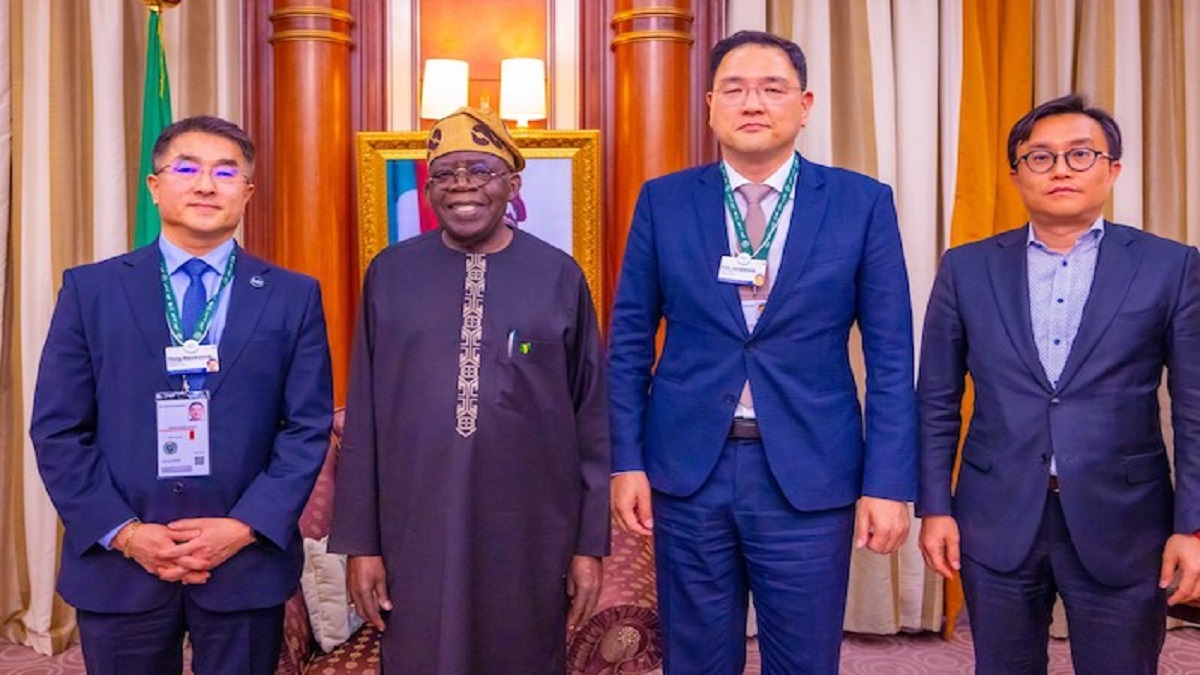

President Bola Tinubu has wooed the CEO of Samsung to take advantage of Nigeria’s infrastructure deficit for investments.
Speaking during a meeting on the margins of the World Economic Forum Special Meeting on Global Collaboration, Growth and Energy for Development with the President and Chief Executive Officer of Samsung, Hong Namkoong, and the Chairman of Samsung Investment Global, Jungwook Kim, President Tinubu said, “We have an infrastructure deficit and you can take advantage of that and invest early and deeply in an environment that is absorptive and ready for it. It is modeled after a willing-buyer and willing-seller arrangement. Easy capital in and easy capital out.”
‘’Nigeria is a very huge country with a huge and able population. We have vibrant youths ready to learn and progress. In fact, our young do not wait for us. They go ahead of us in their determination to succeed. We must keep up and provide opportunities for them to excel with.” Tinubu said.
The President also took time to detail the significant opportunities across sectors for investment within the Renewed Hope Infrastructure Development Fund, which involves the potential utilization of co-finance instruments on critical infrastructure and technology which Samsung is well known to produce.
President Tinubu further harped on the importance of deepening collaboration in the crude oil, natural gas, renewable energy, engineering, technology and agriculture sectors, emphasising the potential for vast private sector participation in the establishment of fully-embedded, off-grid, cold-chain integration across sub-industries in the agriculture sector to forestall post-harvest losses with mass refrigeration capacity.
‘’We are ready to discuss and discover one another more. We can benefit so much from collaborative effort. You have the know-how, and we have the willingness. Seize this opportunity,” the President told the Samsung executives.
Responding, the Samsung Chairman Kim expressed Samsung’s interest in expanding its presence in Nigeria, citing the successes of sister companies already operating in the country while laying out potential new opportunities in Nigeria.
‘’We have built many power stations around the world. We are top of the class in gas-fired power plant construction. We have an ever-increasing portfolio in the production of renewable energy solutions around the world. We can make a lot of progress in Nigeria’s energy sector as well as bringing our technology to other key productive sectors.
‘’Transmission lines and smart grids are areas where we see increasing demand globally. You need infrastructure anywhere you go. We are good at metropolitan rail lines; we are good at bridge construction and any of these types of infrastructure projects, in addition to oil and gas engineering projects.
“We are looking forward to knowing Nigeria better under your leadership and to see how we can penetrate the Nigerian market deeper. This is a great opportunity for us,” Mr. Kim concluded.
-
capital market2 years ago
Rt.briscoe, FBNH, Others halts negative performance of stock market
-
Finance3 months ago
Court orders Sen. Victor Umeh to repay N136m bank debt to AMCON
-



 Abuja Update2 months ago
Abuja Update2 months agoUNDP, FG partnership needed to achieve inclusion, equity- Minister
-
Abuja Update1 month ago
Banks drive stock market performance with N147bn gain
-



 Health2 weeks ago
Health2 weeks agoCapacity training will reduce migration of health workers- NPHCDA
-



 Business1 week ago
Business1 week agoTingo Group unveils Tingo Electric, Tingo Cola drink at Lagos launch
-



 Infotech4 weeks ago
Infotech4 weeks agoWorld Backup Day: NITDA urges Nigerians to ensure backup of data
-
News4 months ago
Oil thieves sponsoring malicious media campaign against Navy – Spokesman

